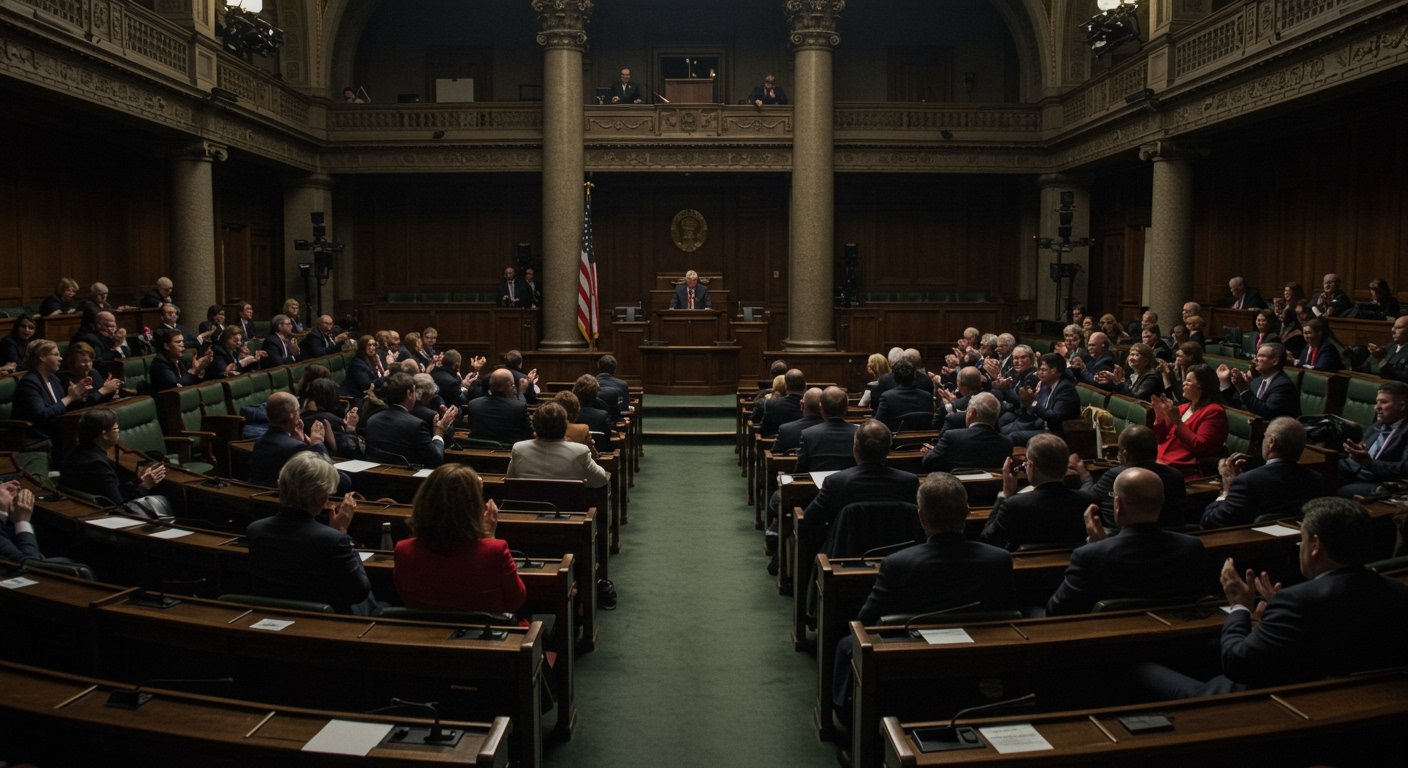Washington D.C. — President Donald Trump has formally issued an executive order mandating the termination of the comprehensive Syria sanctions program, a significant policy shift set to take effect on July 1, 2025. The administration stated this action is intended to support Syria’s pathway toward stability and peace, particularly following the overthrow of President Bashar al-Assad.
Scope of the Executive Order
The executive order lifts the broad framework of sanctions that have targeted the Syrian government and economy. However, the order is explicitly conditional and maintains stringent restrictions on a defined list of individuals and entities. These include President Bashar al-Assad himself, along with his associates. Sanctions will also remain in place against individuals identified as human rights abusers, drug traffickers, and those linked to chemical weapons activities.
Furthermore, the order preserves sanctions targeting internationally recognized terrorist organizations and their affiliates operating within or related to Syria. Specifically mentioned are the Islamic State of Iraq and Syria (ISIS), Al-Qaeda affiliates, and Iranian proxies, all of whom remain subject to U.S. restrictive measures despite the broader lifting of the Syria program.
Treasury Actions and Specific Removals
In parallel with the executive order, the U.S. Treasury’s Office of Foreign Assets Control (OFAC) has initiated steps to implement aspects of this decision. OFAC has proceeded to remove a substantial number of entries from its Specially Designated Nationals and Blocked Persons (SDN) List. A total of 518 Syrian individuals and entities have been delisted, resulting in the unblocking of their property and interests previously held under U.S. jurisdiction.
This action by OFAC is a concrete step towards unwinding the comprehensive sanctions regime and facilitating potential economic interactions that were previously prohibited. However, the continued designation of specific individuals and groups on the SDN list underscores the targeted nature of the remaining sanctions.
Future Policy Reviews Mandated
The executive order also directs specific future actions and reviews concerning U.S. policy towards Syria. Secretary of State Marco Rubio has been tasked with conducting a review concerning the potential full suspension of the Caesar Act. This act, officially known as the Caesar Syria Civilian Protection Act, imposed significant sanctions related to human rights abuses and actions undermining the conflict resolution process in Syria. A potential full suspension would represent a further substantial shift in U.S. policy.
Additionally, the order directs a review of the terrorist designations of Hayat Tahrir al-Sham (HTS) and the interim Syrian President, Ahmed al-Sharaa. These reviews suggest a potential re-evaluation of how the U.S. government classifies and engages with various actors within the Syrian landscape moving forward, depending on the outcomes of the process led by Secretary Rubio.
Relaxation of Export Controls
Complementing the lifting of sanctions, the executive order also permits the relaxation of certain restrictions pertaining to exports to Syria. While the full extent of this relaxation was not immediately detailed, it indicates a move towards enabling specific forms of trade or humanitarian assistance that were previously constrained by the comprehensive sanctions program. This measure could potentially facilitate reconstruction efforts and the delivery of essential goods.
Syrian Government Welcomes Decision
The decision has been met with a positive reaction from the Syrian government. Syrian Foreign Minister Asaad Al Shaibani issued a statement welcoming the move. He asserted that the termination of the sanctions program would effectively “open the door” for crucial reconstruction efforts across the country and stimulate economic recovery, which has been severely hampered by years of conflict and international isolation.
Looking Ahead to July 1, 2025
The formal termination of the Syria sanctions program on July 1, 2025, marks a pivotal moment in U.S. policy towards the nation. While significant restrictions remain on specific entities and individuals, the broader lifting of sanctions, coupled with the directive for reviews of key legislation like the Caesar Act and specific designations, signals a potential shift towards enabling greater economic activity and potentially altering the diplomatic landscape surrounding Syria, contingent upon future developments and the outcomes of the mandated reviews.













